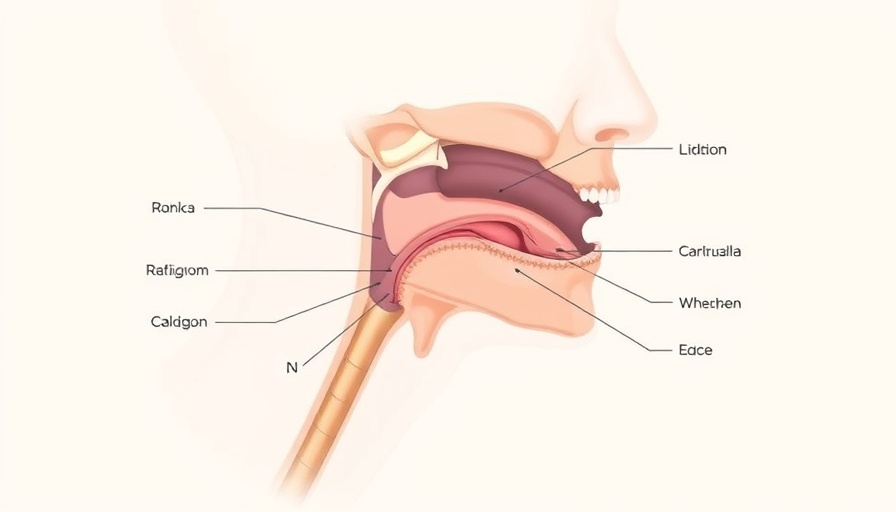
Understanding the Shift in Treatment for Advanced Nasopharyngeal Carcinoma
The recent findings regarding the use of toripalimab—a monoclonal antibody directed against the programmed cell death protein 1 (PD-1)—are changing the landscape of treatment for advanced nasopharyngeal carcinoma (NPC). This research indicates that a cisplatin-free strategy enriched with toripalimab not only proves to be efficacious but is also safe, offering promising alternatives to traditional therapies. For patients battling NPC, this could represent a critical turning point in their treatment journey.
Why This Study Is Important
NPC presents a significant health challenge, particularly in Asia where the incidence rates are considerably higher. Traditionally treated with cisplatin-based regimens, patients often face significant side effects without guaranteed efficacy. The introduction of an immune checkpoint inhibitor like toripalimab into treatment regimens carries the potential for improved patient outcomes, transforming how oncologists approach care.
Potential Side Effects and Safety Considerations
As with any treatment strategy, safety is a primary concern. The use of toripalimab has been associated with manageable side effects compared to conventional chemotherapy. Notably, patients reported fewer instances of nausea and vomiting, two common adversities of cisplatin treatment. This shift towards a more tolerable regimen not only prioritizes efficacy but also enhances the quality of life for patients.
Cultural and Global Perspectives on NPC
Understanding NPC requires a look at its cultural context. The disease is predominantly diagnosed in Southeast Asia, which necessitates culturally sensitive approaches to patient care and education. As emerging therapies like toripalimab gain traction, there is a crucial need for awareness among communities that carry a higher risk of developing this cancer. Increased education about NPC and the implications of new treatments can empower patients and families making informed choices about their care.
The Future of Nasopharyngeal Carcinoma Treatment
The promising results of toripalimab in treating advanced NPC herald a shift towards more personalized and targeted therapies. Future investigations could explore combinations of immunotherapy and targeted agents to further augment treatment responses. Researchers are optimistic that these studies will continue to evolve, potentially leading to even better outcomes for patients.
Expert Opinions and Diverse Perspectives
Oncologists and researchers expressed enthusiasm about the findings from the study on toripalimab. Many pointed to its potential to alter the standard of care for NPC, pivoting away from traditional cisplatin-based therapy. However, some experts also raised questions about the long-term effects of immunotherapy and the need to monitor patients closely. Balancing optimism with caution is key as more data emerges regarding efficacy and safety.
Key Takeaways for Patients and Caregivers
For patients and caregivers, understanding the implications of the recent study on toripalimab can be invaluable. Engaging in discussions with healthcare providers about treatment options, including the potential role of immunotherapy, can significantly influence treatment pathways. Awareness of emerging therapies not only empowers patients but also encourages broader conversations surrounding oncological care.
Conclusion
The advancement in the treatment options for advanced NPC marked by the introduction of toripalimab signifies hope for better patient outcomes and enhanced quality of life. As more research sheds light on the performance and safety of this therapy, healthcare providers and patients alike should remain engaged and informed about these developments.
 Add Row
Add Row  Add
Add 




Write A Comment